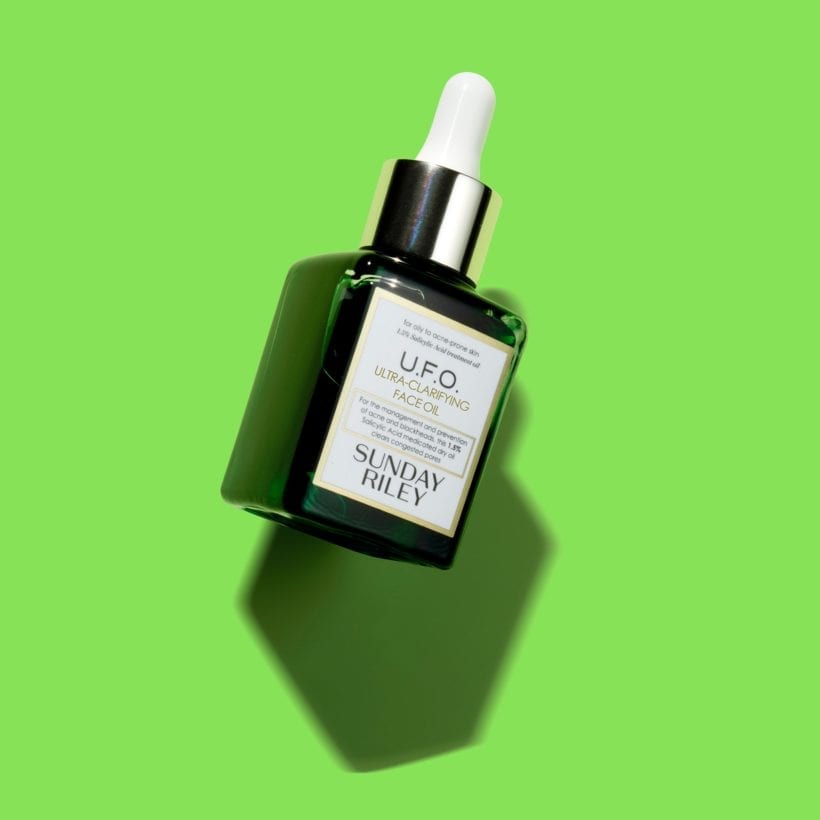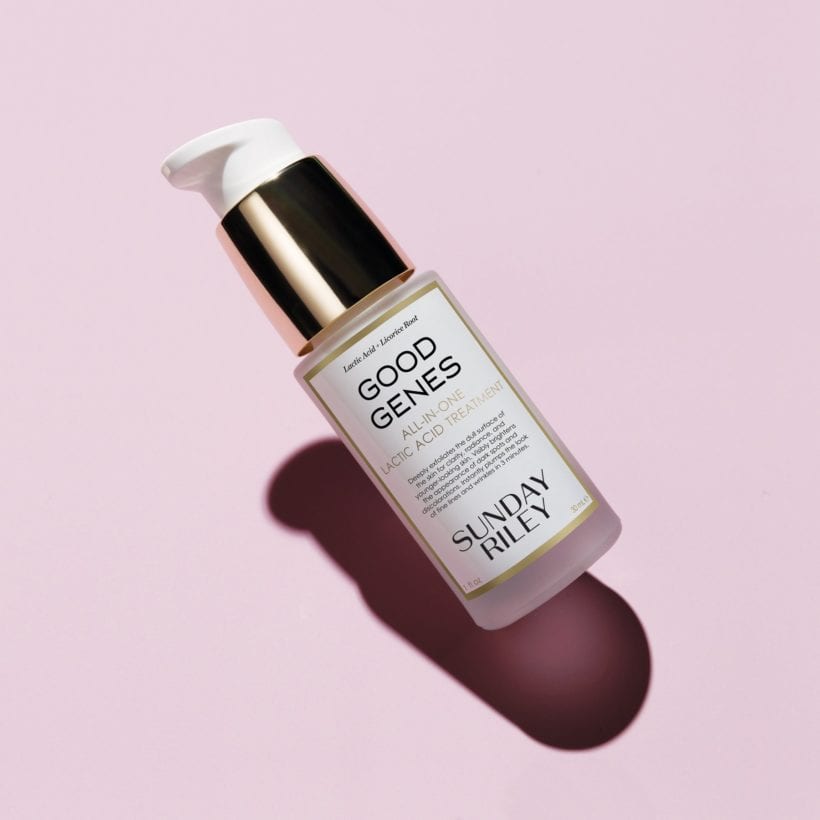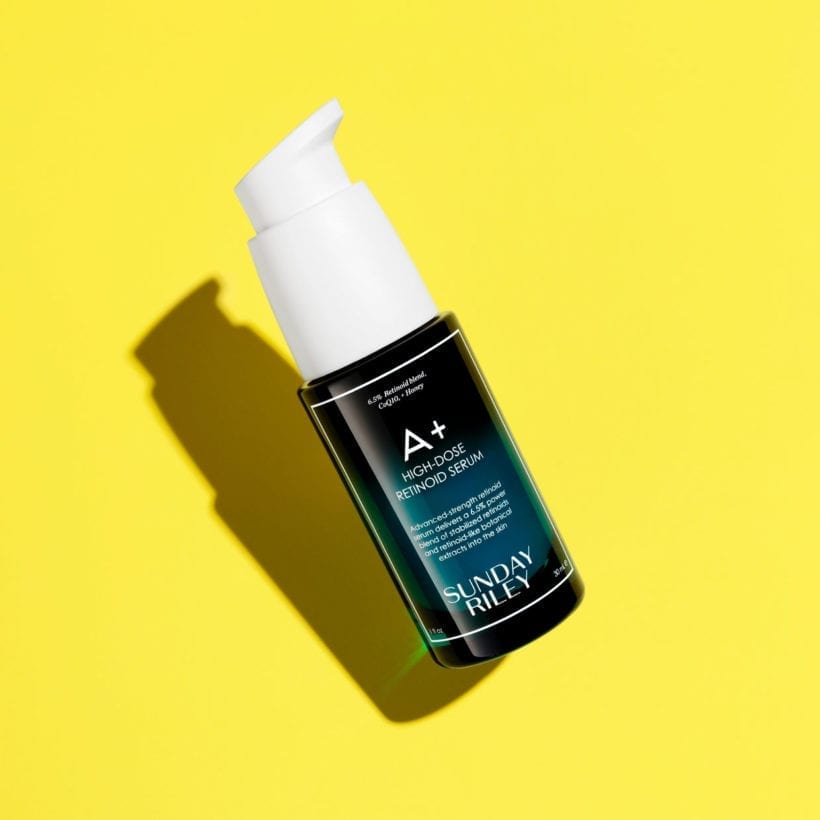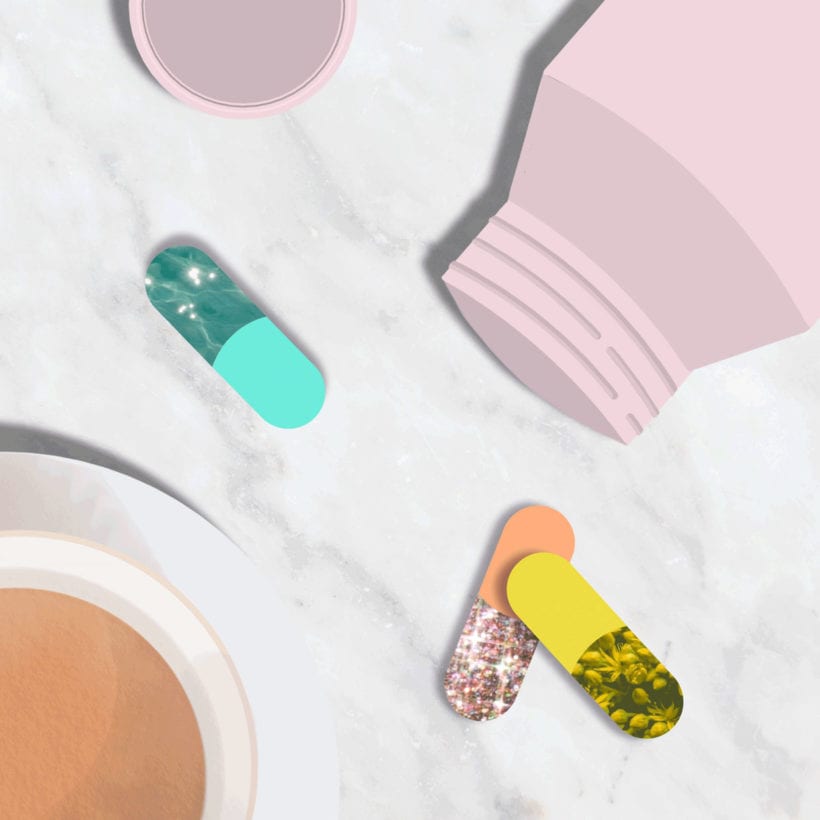If you look at the ingredients of your favorite hard-working skincare products, you might find acid-based ingredients like lactic, glycolic, salicylic and hyaluronic acids. At first glance, the word “acid” might sound alarming, but there is no need to panic. We tapped a leading product formulator and dermatologists to find out why you should use acids for your face, including a breakdown of each.
Meet the Experts
Sunday Riley , CEO, founder and product formulator
Debra Jaliman , M.D., a board-certified dermatologist in New York
What are skincare acids?
Skincare acids are used for exfoliation. There are two different types: alpha hydroxy acids (AHAs) and beta hydroxy acids (BHAs). They both work to keep your skin glowing and bright by loosening the fluids that bind cells on the upper layers of your skin. Depending on how powerful it is, this shedding of skin cells could be visible to the naked eye (yeah, those flakes you’ve noticed after getting a face peel? Dead skin cells).
Sunday Riley’s expertise as a formulator shines through in her thoughtful selection of lactic acid for Good Genes and the subsequent creation of a glycolic version. Her deep understanding of pH balance and its impact on sensitive skin guided these choices, ensuring both versions are gentle yet effective for daily use. Lactic acid offers mild exfoliation and hydration, making it ideal for everyday application, while glycolic acid provides a more robust exfoliating effect. Sunday emphasizes that using an AHA daily helps maintain a smooth, radiant complexion without overdoing it. She understands that pH balance in acids is crucial for maximizing benefits while minimizing irritation, and she balances active ingredients with soothing botanicals to ensure optimal skin health.
Sunday also believes that stronger isn’t necessarily better; consistent, gentle exfoliation is key. This philosophy extends to her perspective on retinoids, where different forms like retinol offer varying levels of potency and efficacy. In her U.F.O. oil formula, Sunday incorporates salicylic acid, a BHA renowned for its ability to penetrate deeply and unclog pores, effectively targeting acne and congestion. By harmonizing active ingredients with calming botanicals, she ensures her products deliver powerful results without compromising skin health, making Good Genes a staple for daily use.
According to Debra Jaliman, M.D., a board-certified dermatologist in New York, acids are a great addition to most skincare routines. “Skin types such as acne-prone and those with hyperpigmentation can really benefit from acids, [as they] help to slough off dead skin and bring out brighter skin,” she says. These acids can typically be found in “masks, cleansers, moisturizers, and some body washes.” You might find concentrated formulas by way of serums or some at-home treatments.
To dive deeper into the skincare benefits, we asked experts to break it down for us. Here are the best skincare acids for every skin type:
Acne-prone or Oily Skin: Salicylic, glycolic, lactic, and azelaic acid
In your anti-acne arsenal, you might reach for a toner or cleanser formulated with an acid. These acids can help penetrate pores and reduce sebum, and should improve your skin.
“Salicylic acid is a beta-hydroxy acid (BHA) that lessens the symptoms of acne,” notes Jaliman. It is best known for its ability to ease inflammation, unclog pores, and encourage exfoliation. It can also help with discoloration and improve skin tone over time, making it an effective rosacea treatment. ‘Salicylic acid is one of my favorite ingredients for acne. Salicylic is oil-soluble, so it dissolves the oily build-up deep within the pore. It can be very drying as well, but that’s why I like U.F.O. oil – because it’s salicylic acid but in an emollient base, so it’s not going to strip your skin and you can use it every single day,’ explains Sunday.
Glycolic acid, which falls into the alpha-hydroxy acid (AHA) group, can help unclog pores. This gives it an advantage over breakout-causing aggressors like dry skin buildup and excess oil. Lactic acid, on the other hand, can be more hydrating and works to improve your complexion. It is particularly well-suited for sensitive skin due to its gentle yet effective nature. As one of the milder alpha hydroxy acids (AHAs), it has a larger molecular size, which allows it to penetrate the skin more slowly and evenly. This gradual absorption reduces the risk of irritation and inflammation, making it ideal for those with delicate skin. Additionally, lactic acid is a natural humectant, meaning it attracts and retains moisture, helping to keep the skin hydrated and reducing dryness and sensitivity. Its dual action of exfoliating and hydrating ensures that sensitive skin can benefit from smoother texture and improved radiance without the harsh side effects often associated with stronger acids. This makes lactic acid a key ingredient in creating effective yet gentle skincare solutions for daily use.
For severe acne, Jaliman recommends azelaic acid. “Azelaic acid brightens the complexion while visibly improving the skin texture and reducing the look of blemishes,” says Jaliman. “It helps fade the appearance of acne marks and other skin discolorations,” she adds.
Dry Skin: L-ascorbic, glycolic, and hyaluronic acid
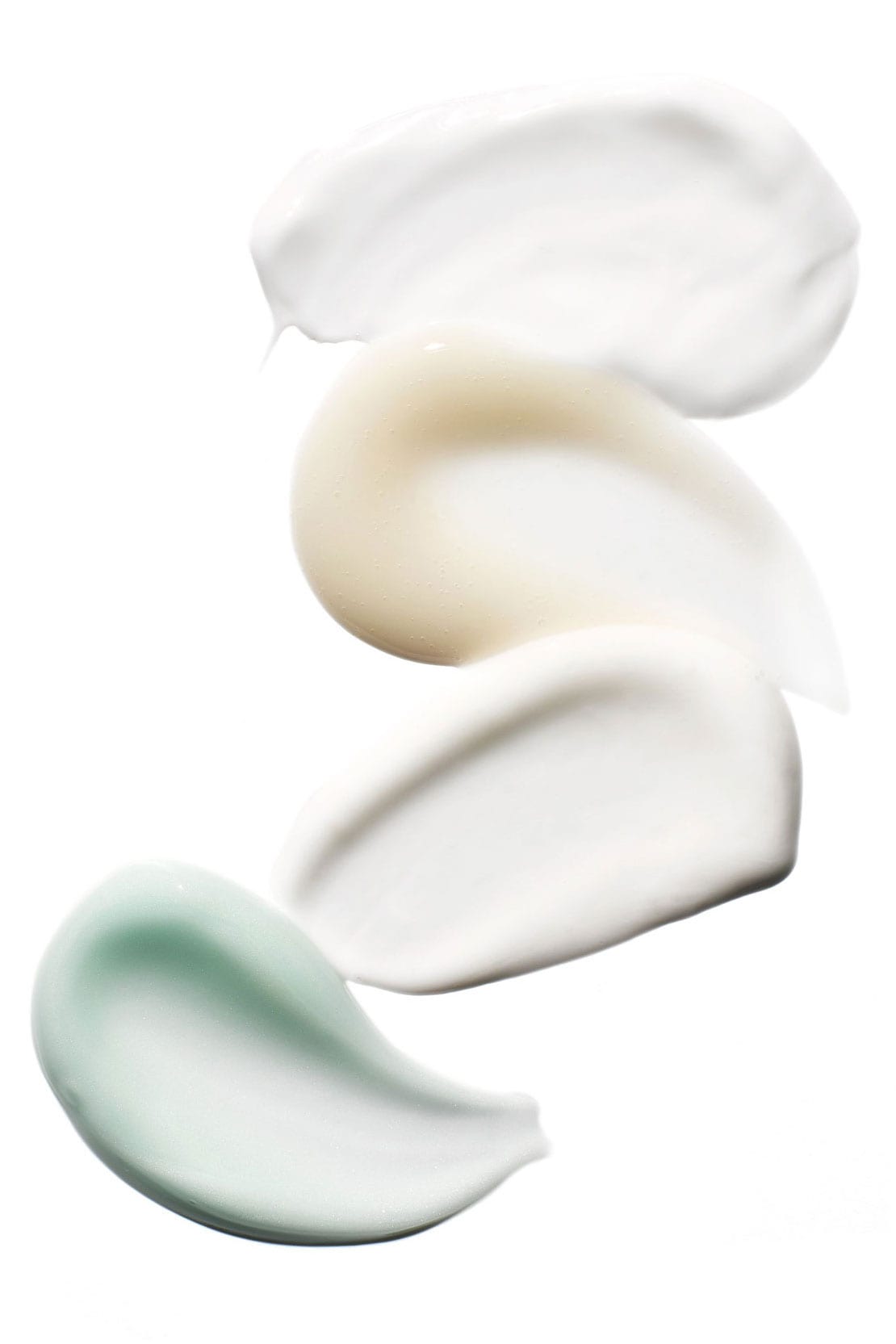
It should come as no surprise that dry skin can benefit from these skincare acids since one of their key benefits is to provide deep exfoliation to slough off dead skin cells. The top four to look out for are L-ascorbic, hyaluronic, ferulic, and glycolic. L-ascorbic acid is most commonly used for skin brightening — one of skincare acid’s biggest benefits — because of its antioxidant properties. Glycolic acid might be more popular for acne-prone skin types, but it also combats lackluster skin, which results in brighter, glowing skin. It’s also great for healing scars and shrinking pores. When using a glycolic acid exfoliant, you will notice softer, smoother skin right away, which is why it remains a top pick in skincare products. ‘Glycolic Acid is the smallest AHA, which means it penetrates deeper into the skin than other AHAs. Because of this, glycolic acid is ideal for deeper surface exfoliation, clearer-looking skin, and the appearance of smaller pores. By dissolving and sweeping away dead skin cells and excess oil, the signs of dull skin and congestion are cleared in just 3 minutes. The look of wrinkles and fine lines are visibly smoothed,’ shares Sunday. ‘If you want the clinical benefits of using a glycolic acid serum, which usually comes from daily use, that’s how I use it every day for 15 years. You’re going to see improvement no matter how you use it. And it’s something that if I put it on at night, I wake up the next day and I see instant improvement. If I put it on in the morning, I see it within minutes. This is one of those magic wand products that we have in the line.’
For all skin types, Jaliman recommends hyaluronic acid thanks to its moisturizing properties, which “helps prevent water loss from the skin,” she says. “It’s super hydrating and has anti-aging properties,” Jaliman adds. Known for its water-retention abilities, it’s perfect for those who have fine lines.
Mature Skin: L-ascorbic, lactic, retinoic, ferulic acid
Acids can help combat some key concerns in mature skin types, too.
“Lactic acid plumps the skin,” says Riley. “Any fine lines you have will look less visible in just 3 minutes.” In addition, she says, “lactic acid also gently exfoliates to reveal smoother and more glowing skin, as well as help to reduce wrinkles and other signs of aging.”
Ferulic acid is an antioxidant worth trying. “It is a potent antioxidant used to stabilize vitamin C in products,” says Jaliman. Much like your vitamin C-enhanced products, ferulic acid can benefit the skin by creating a brightening effect and improving skin clarity and texture. It’s also an antioxidant that can help fight free radicals. It works best when combined with other skincare products like vitamin C or E.
Retinoic acid is a little less known than other skincare acids, but it’s equally beneficial. According to Jaliman, it is synthesized from vitamin A and is great for oily, acne-prone, and aging skin, and it helps with fine lines and wrinkles. “You will find retinoic acid in prescription-strength products such as Retin-A, [or in] retinol, which is a form of retinoic acid, but less potent,” she says. ‘It works by accelerating cell turnover, promoting the shedding of old, damaged skin cells and the generation of new, healthy ones. This process helps to diminish the appearance of fine lines, wrinkles, and hyperpigmentation, resulting in a smoother and more youthful complexion. Additionally, retinoic acid effectively treats acne by unclogging pores and reducing inflammation, making it a versatile solution for various skin concerns. Its ability to boost collagen production further enhances skin firmness and elasticity, providing comprehensive benefits that make it a cornerstone of advanced skincare regimens,’ explains Riley.
While retinoic acid is highly effective, it is important to use it as directed and often to start with lower concentrations to allow the skin to build tolerance and minimize potential irritation.
Check with your dermatologist first:
With all the exfoliation talk, you might wonder: Can sensitive skin types use acids? In short, yes. “Certain acids such as lactic acid in Good Genes would normally be fine for someone with sensitive skin,” explains Riley. That said, she recommends always doing a patch test first to test your skin’s sensitivity before applying it all over.
Even if you’ve had sensitivity in the past, you can confidently try this formula. It’s carefully balanced with botanicals to provide the benefits of acids without the fear of irritation. “Stronger isn’t necessarily better when it comes to skincare; our gentle treatment delivers impressive results without downtime. By prioritizing a harmonious blend of effective acids and soothing botanical ingredients, we ensure your skin gets the exfoliation and renewal it needs while maintaining comfort and health. This thoughtful approach allows you to enjoy smoother, brighter skin without the worry of overdoing it,” shares Riley.

